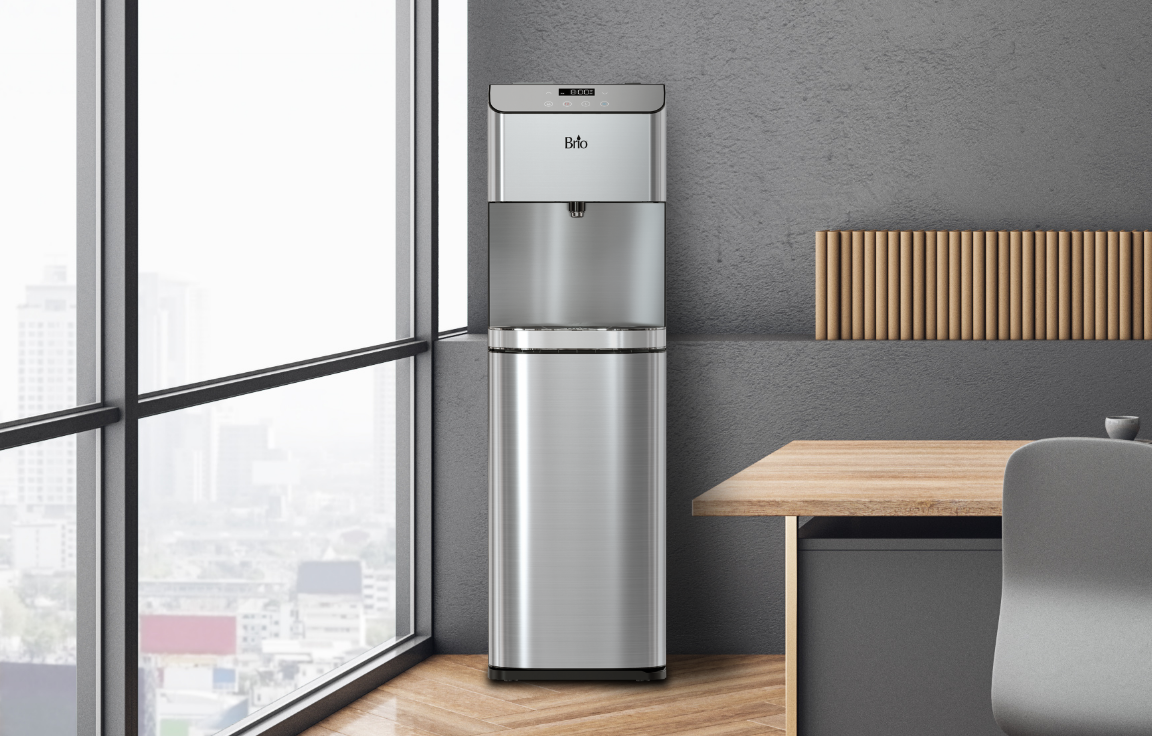Hard water contains high levels of minerals like calcium and magnesium. Unfortunately, these minerals can cause serious plumbing issues. For example, calcium deposits can collect on pipe interiors. If left untreated, the mineral can narrow the pipe so much that barely a trickle of water can pass through. In these cases, you might need to completely replace damaged pipes and other affected systems.
A water softener system for homes helps prevent mineral accumulation and other potential problems. Keep reading to learn more about how the systems work and the positive impact of adding the best water softener system to your home.

Water softener systems like the Brio Whole House Water Softener System use resin beads to remove unwanted minerals from water. The resin beads have negatively charged ions. When they come into contact with minerals that have positively charged ions, the system reduces the water’s “hardness,” giving you softened water.
If that sounds too technical, just know that hard water enters the tank, interacts with resin beads, and comes out softened on the other side.
Economic Benefits
The economic benefits of installing a water softener system largely come from avoiding the costs of replacing plumbing and appliances.
The minerals in hard water can do more than clog pipes. They can also accumulate in the water lines of washing machines, refrigerators, dishwashers, and other appliances. By removing those minerals, you give your appliances a longer lifespan.
Adding a water softener system to your home could also help lower your monthly energy bill. Hard water can cause mineral scaling inside your water heater. Eventually, the scaling forms an insulating barrier that forces your water heater to consume more energy to give you warm water. By softening the water, your water heater can give you more consistent water temperatures while consuming less electricity or natural gas.
Health Benefits
Hard water can affect your health and appearance in several ways.
Hair and Skin

A lot of people install water softener systems for homes because they don’t feel clean after showering. The minerals in hard water can collect on your skin and hair. Even the best shampoos struggle to strip away the excess minerals, so your hair might feel heavy and greasy.
For some hair types, the minerals can make hair feel brittle and dry. Regardless of how it affects your hair, expect unwelcome results.
Hard water can also cause dry, irritated skin. Again, some skin types react more severely to hard water. However, even mild reactions can cause discomfort or make you feel self-conscious.
Long-Term Health

Of course, you also want to think about how hard water affects your physical health. Some research suggests that the minerals in hard water could contribute to serious health issues like cardiovascular disease and dementia.
More studies are needed to truly measure the effects of hard water on human health. You can protect your family’s health by installing a whole home water softener system that ensures clean water comes from every tap.
Environmental Impact
Hard water doesn’t directly impact the environment. However, the solutions people use to avoid hard water can harm the environment in several ways.
Reduce Plastic Waste

People who want to avoid the potential health problems caused by drinking hard water might turn to bottled water as a safer option. While bottled water might give you a healthier beverage, those plastic bottles wreak havoc on the environment.
Unfortunately, very few plastic bottles actually get recycled. At most, 6% of all plastic in the United States gets recycled. The rest ends up in landfills or becomes troublesome litter that leaches chemicals into natural water systems.
Instead of buying water in plastic bottles, people can install water softener systems and use the clean water to fill reusable bottles. You reduce the amount of plastic in the environment, and you get to save money by avoiding expensive bottled water.
Introduce Fewer Chemicals Into the Environment

Many detergents and other cleaning products contain chemicals that soften water. Zeolites, a family of inorganic materials commonly found in cleaning products, help negate the harmful effects of hard water while washing dishes or cleaning clothes. However, zeolites and other softening agents have been connected with illness in humans.
Properly disposing of zeolites minimizes their harmful effects on the environment. When they’re included in common household products, though, they go right down the drain, where they enter local water systems.
Installing a soft water system means using fewer harmful chemicals — or perhaps none — to protect the environment and your community’s health.
Choosing a Water Softener System

Adding a water softener system to your home can significantly benefit your finances, health, and the environment. Which system suits your home best? You can start exploring your options by learning more about Brio’s Water Softener collection.
How Do Water Softener Systems Work?













































































